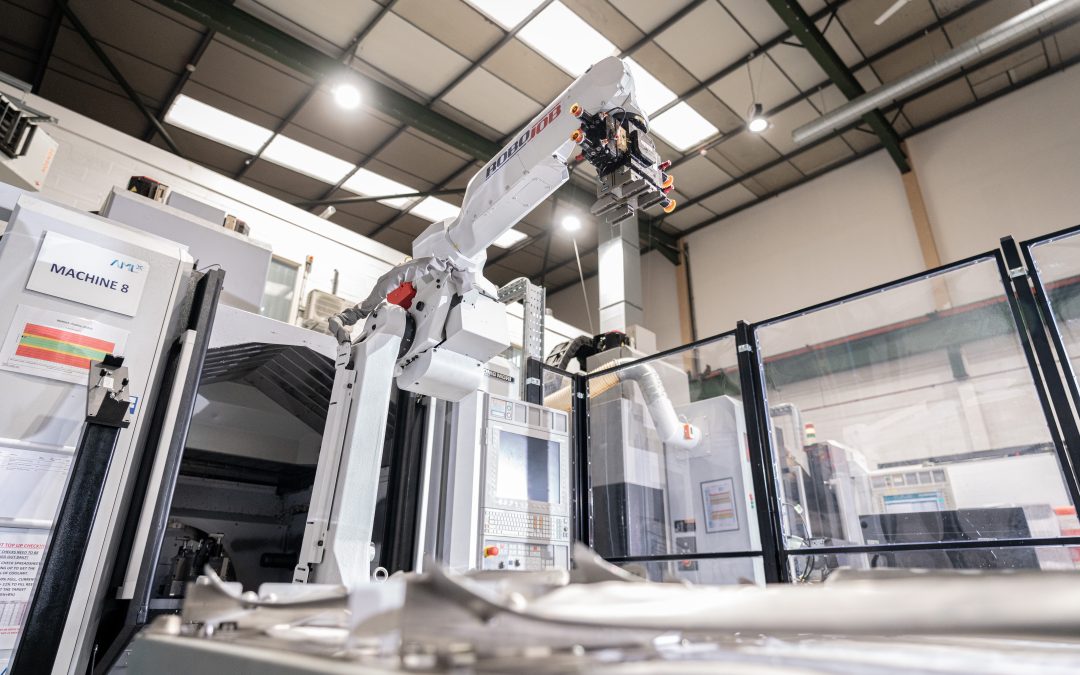There was great celebration amongst the aerospace industry as Business Minister Alan Mak celebrated the landmark 10-year anniversary of the joint government-industry funded Aerospace Technology Institute (ATI). This historic milestone covers £3.6 billion in funding to deliver a long-term plan to produce more than 400 cutting-edge aerospace R&D projects across the UK in the past decade, driving world-class research in sustainable aviation and supporting thousands of jobs.
Business Minister Alan Mak commented “Our world-class aerospace sector is a British success story, with government and industry coming together to provide billions of pounds in unprecedented support to help us lead the way on cleaner, greener air travel. Over the last decade the ATI has been crucial to this, helping our aerospace industry soar to new heights and supporting thousands of jobs while continuing to grow our economy.
ATI CEO Gary Elliott added “Since the ATI was created ten years ago, we have helped to transform the UK aerospace sector through the development of advanced and innovative technologies – setting the sector on the path to Net Zero 2050 with our Destination Zero strategy. The ATI Programme has helped secure jobs, support growth, return economic value to the UK and position the UK to capture market share in next-generation sustainable aircraft.
AML Sheffield was proudly awarded funding by the ATI to deliver one such cutting-edge project. Between 2020 and 2023, AML and AMRC (Advanced Manufacturing Research Centre) worked together on a project funded by the ATI – Automotive Excellence for Aerospace (AXIS). The project objectives covered the following –
- Implement enhanced digital connectivity in the supply chain to facilitate advanced shipping and condition of supply data.
- Develop ahead-of-time adaptive machining toolpath algorithms to reduce production time lost due to current in-cycle adaptive process.
- Develop and prove-out automated robotic loading of variable condition aerofoils.
- Integrate the developed technologies on a high-performance machining prototype cell.
Upon its completion in March 2023, AXIS resulted in the following conclusions:
- A value-stream-mapping approach was used to evaluate the baseline condition of the overall manufacturing process and confirm the targeted areas for improvement were appropriate. This showed that the overall production lead time was 219.5 hours, 99.5 hours of which were value-added activities.
- A digital connectivity platform was created through the down-selection of Microsoft Azure Data Share as a suitable data share system and the integration of this with AML’s Factory Master ERP system. The ability to automate the transfer of advanced dimensional component data from customers to AML prior to the components being physically shipped was demonstrated and found to be suitable in terms of time, cost, and effort.
- An automated adaptive manufacturing process was developed which could take measurement data inputs in the form of individual component-specific scan data, CMM data, or on-machine probing data, and use this to create bespoke toolpaths for each component. This was demonstrated live, and evidence documented as part of the project.
- Significant improvements were made to the machining strategy, including simplification to reduce the number and cost of tools and optimisation of the cutting parameters and material removal to reduce cycle time. The improved strategy reduced the overall machining cycle time by 15%.
- An impact assessment was undertaken using the same value-stream mapping techniques to evaluate the impact of each of the developed technologies. This showed an overall in-process cycle time reduced from 99.5 to 78.4 hours, a 20% reduction.
AML has overseen the integration of several advanced processes within the business:
- Pre-machining optical scanning of parts to generate advanced notice of material condition to AML allowing for automated adaption of machining tool paths to suit part profiles
- Robotics utilisation for loading and unloading of parts from the machine and also for the CMM
- Automated part tracking and scanning with connection to AML’s live MRP system
The application of all the described technologies is the reduction of manual inputs and the ability to predict the state of supply before arrival at AML, resulting in increased productivity of parts through reduction of overall production times. The successful implementation of the project and the development of AML’s high-rate production has resulted in AML securing long term contracts for the production of components for regional business jet engines.
AML is excited to embark on additional research projects in the near future.


Recent Comments